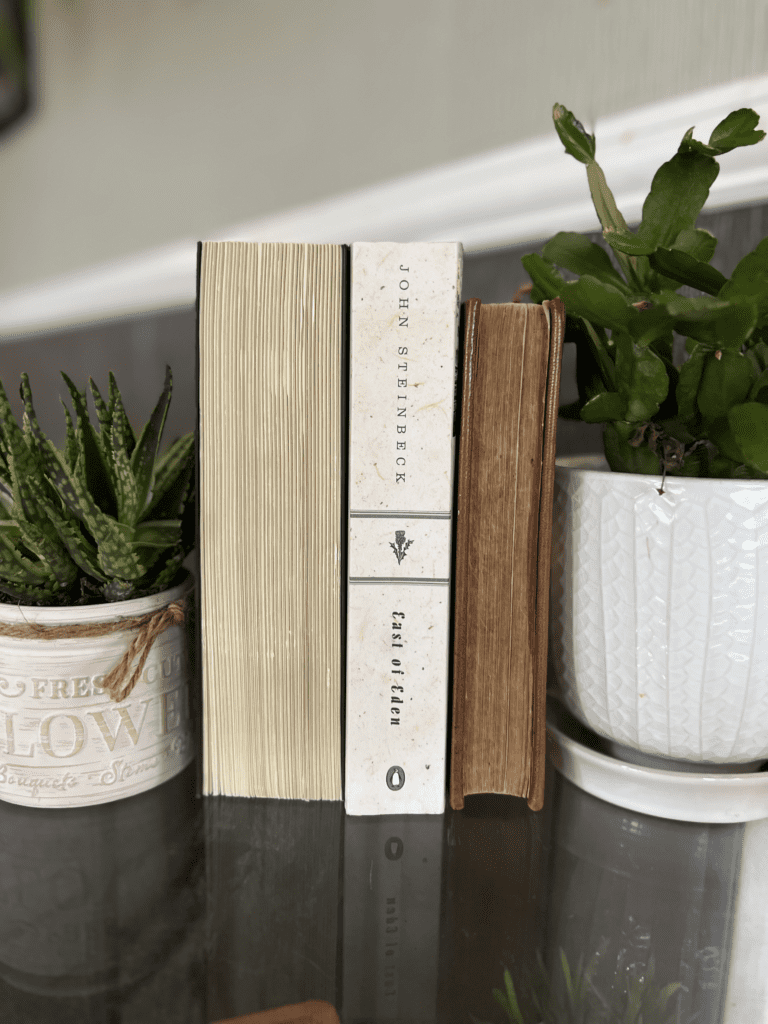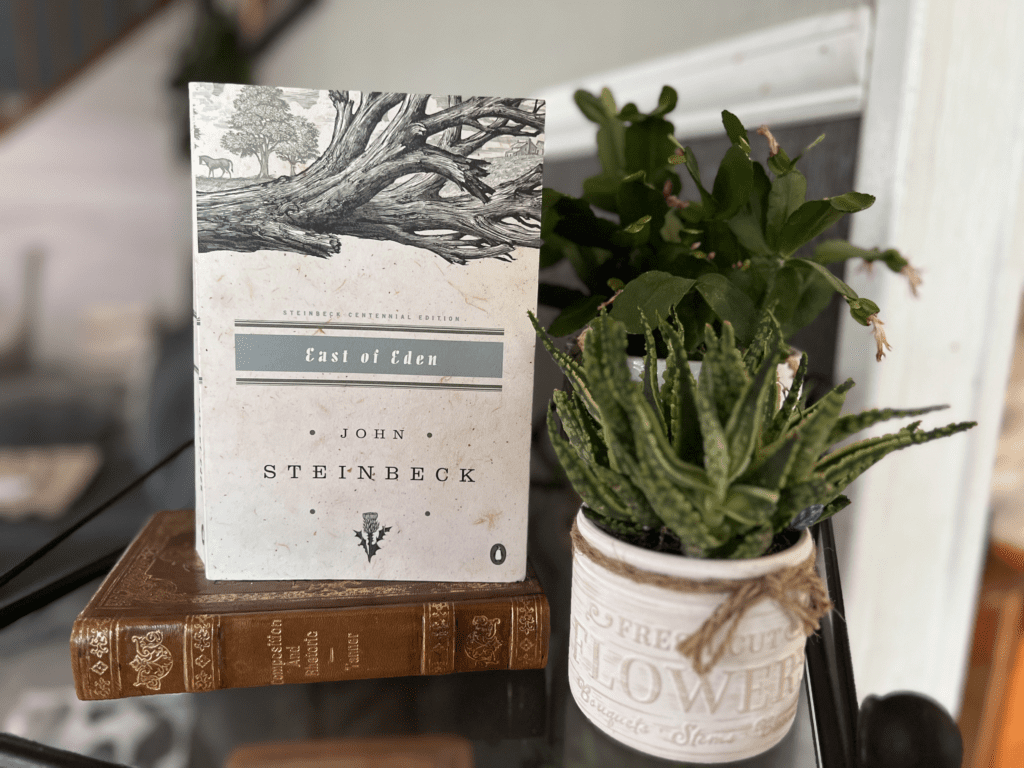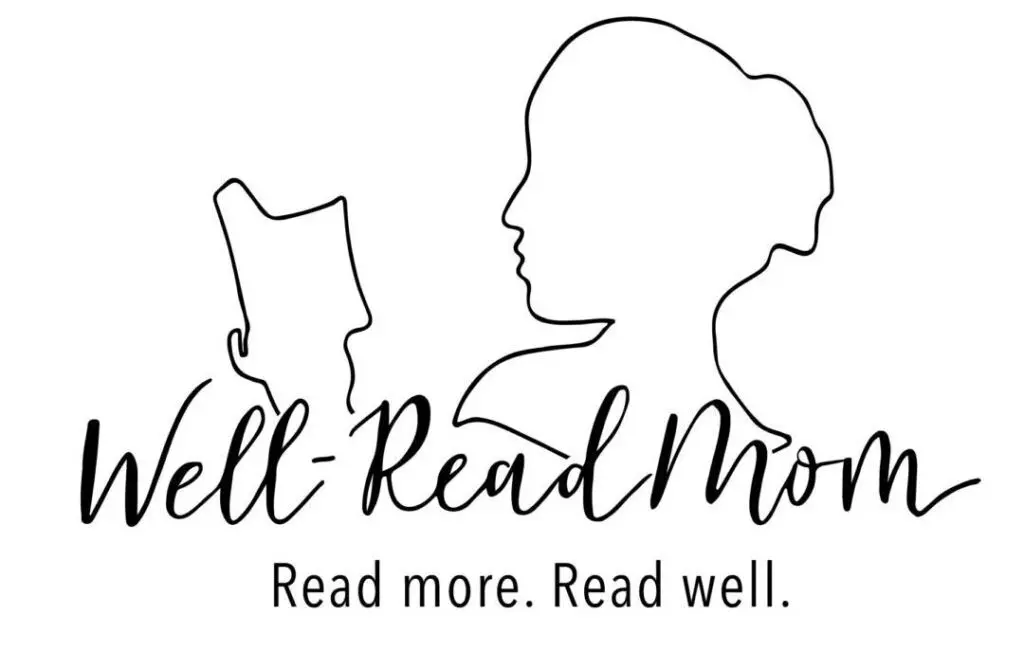East of Eden: The Bad, the False, and the Ugly
Written by Chelsee White
As I snuggled up on the couch, a cup of rose tea steaming in my favorite mug within arms reach and my newborn baby asleep on my chest, I opened the newest Well-Read Mom book selection. I hadn’t had a chance to read any of the book selections during the first half of the year due to moving and welcoming our newest child, so this was a long-awaited joy. It was a new book full of new characters to meet, places to explore, and thoughts to contemplate. I was ready!

It only took a few pages to realize this book would take me places I wasn’t sure I wanted to go. The book was East of Eden by John Steinbeck, WRM’s January and February read. I immediately realized how fitting the title was—this isn’t Eden. This world isn’t the beautiful place God intended for His creation to enjoy. It falls short, sin has come, and the fallen nature of humanity is front and center. Sin, in all its ugliness, is present in the lives of everyone in the book. Even Samuel Hamilton, whose character I most enjoyed, had flaws and shortcomings.
Of course, this is true to life. In Romans 3:23 we are reminded of this, “For all have sinned and fallen short of the glory of God.” Yet I wondered whether immersing myself in the story by reading East of Eden, with its vulgarities and vileness, was genuinely fruitful. Does this type of literature belong in the life of a Christian? Is it beneficial to lower ourselves to such a depth to grasp something about our fallen nature we may already know? To contemplate the good, the true, and the beautiful, must we first go through the bad, the false, and the ugly?
These are the questions I wrestled with as I read the book. It certainly wasn’t a light-hearted read, and there were evenings I went to bed sorrowful. Yet as I asked myself these questions and considered various answers, I recalled the mystery of the Incarnation: How Christ lowered Himself to become man to show us something greater than ourselves. He calls us to imitate Him, lower ourselves, and consider who we really are so that He can heal us and lead us back to Himself.
He came and ate with sinners, not to join in their sin but to unite them with Him. We are these sinners! The gospels tell a story of souls saved but also of souls lost. Saint Peter was full of contrition for his sins, and in his brokenness, he chose to humble himself and ask God’s forgiveness. In contrast, Judas betrays Jesus, and then, unable to overcome his pride, he commits suicide, forsaking God’s offer of forgiveness.
The characters in East of Eden represent the epitome of our fallen nature. The dialogue depicts some characters as “good,” while others are “not good,” but as we read the novel, we find that none of them are good. This discovery is reminiscent of Romans 3:23. Our fallen nature is exemplified over and over and over. Yet I found that some characters, like Cathy Ames, represented a type of Judas—unable to overcome their pride, they surrender themselves to destruction. Others, like Cal Trask, represent a type of Saint Peter—even after sinning, they have humility enough to beg forgiveness and ask for strength to overcome their weakness. In chapter 30 of East of Eden, Cal silently pleads, “Don’t let me be mean.” Still, as is familiar with man, even after his good intention, he makes a tragic mistake and gives in to the temptation toward meanness, and the consequences are devastating. Yet he doesn’t remain in his lowness and pride; he gets up and asks forgiveness. Ultimately, Cal loves his father and wants to please and reconcile with him.
This situation reminds us that we should not remain in our sin. Instead, when we make a mistake, no matter how big, God our Father has made a way for us to be reconciled to Him. The book’s theme of timshel, “thou mayest,” resonates loud and clear here: The choice is ours. We can humble ourselves, or we can remain hard-hearted in our sin. What will we choose?
East of Eden isn’t a book that is enjoyable to read. Is that why we read? Is it solely for entertainment? As Christians, our primary focus isn’t to be entertained but to grow in holiness. Reading books that help us in this endeavor do belong on our shelves, and perhaps East of Eden is one of those books. Sure, it is full of the bad, the false, and the ugly, but then again, are we any better? Because of the sin of Adam and Eve, the same sin that cast them out and east of the Garden of Eden, we are born with original sin on our souls. In other words, we are born full of the bad, the false, and the ugly. But Jesus, the Good, the True, and the Beautiful, has humbled Himself and become one of us to bring us back to Himself. Therefore it stands to reason that we cannot contemplate the good, the true, and the beautiful without first knowing ourselves and knowing that which is not true, not good, and not beautiful.

East of Eden benefits us because it helps us to know our fallen nature and ourselves. I must recognize that I can choose wrong, to choose self over God. As I look at my children, whom I love more than anything, I can feel a particular fear and discomfort in knowing that they, too, have free will and are capable of ugliness. This novel shows us the outcome of a life that chooses vice over virtue. That possibility should make us uncomfortable because it isn’t what we were created for, yet it is what we have created for ourselves. Every day we are confronted with choosing what kind of person we want to be. I hope that the vivid examples in East of Eden will help us all to avoid the destructive tendencies of sin we all have and that, instead, we will humble ourselves and allow God to transform our ugliness into what He created our souls to be: the beautiful image bearers of His goodness and truth.

Chelsee White
Chelsee White is a member from Auburn, California
About Well-Read Mom
In Well-Read Mom, women read more and read well. Our hope is to deepen the awareness of meaning hidden in each woman’s daily life, elevate the cultural conversation, and revitalize reading literature from books. If you would like to have us help you select worthy reading material, we invite you to join and read along with us. We are better together! For information on how to start or join a Well-Read Mom group visit our website wellreadmom.com

